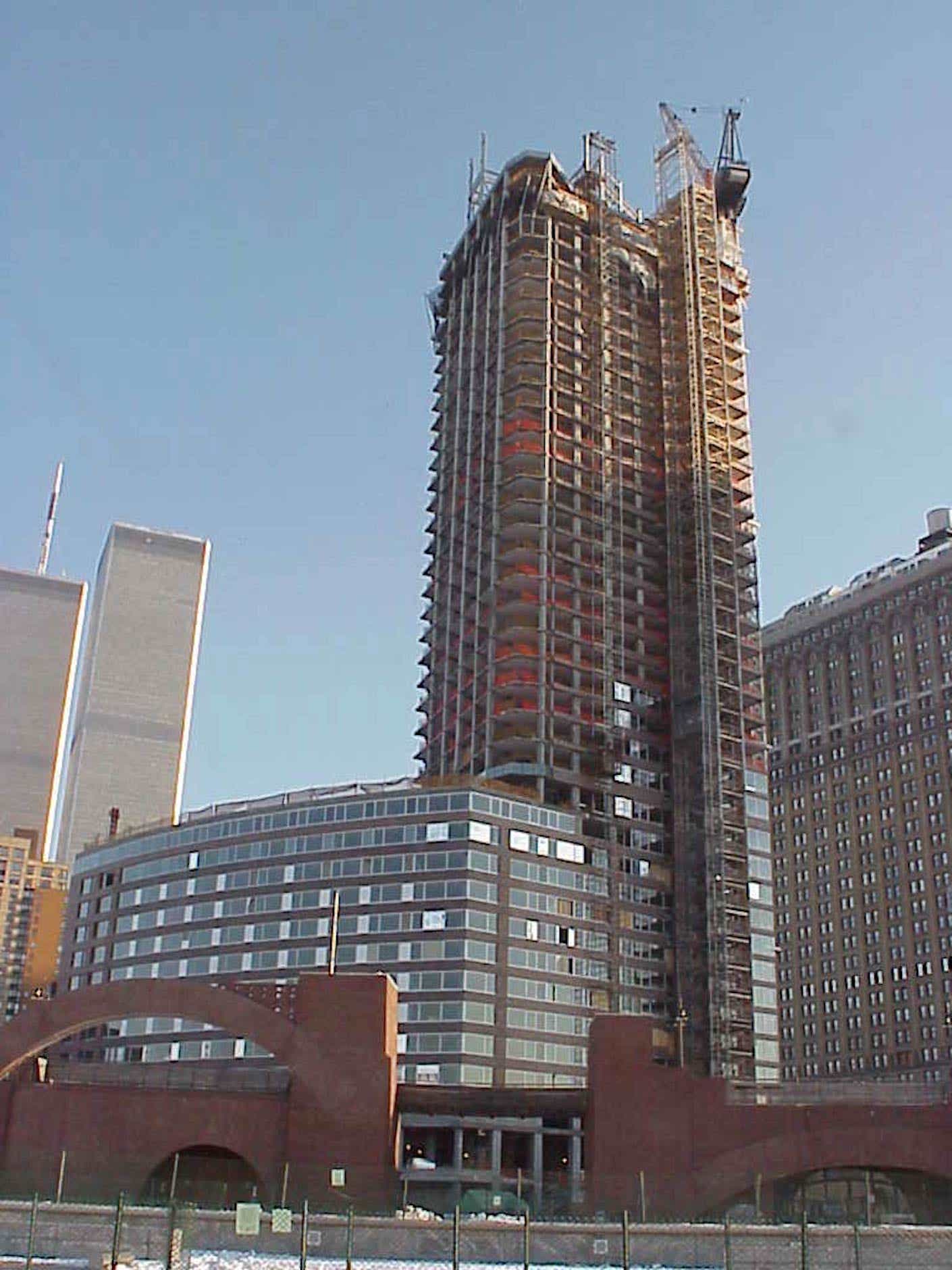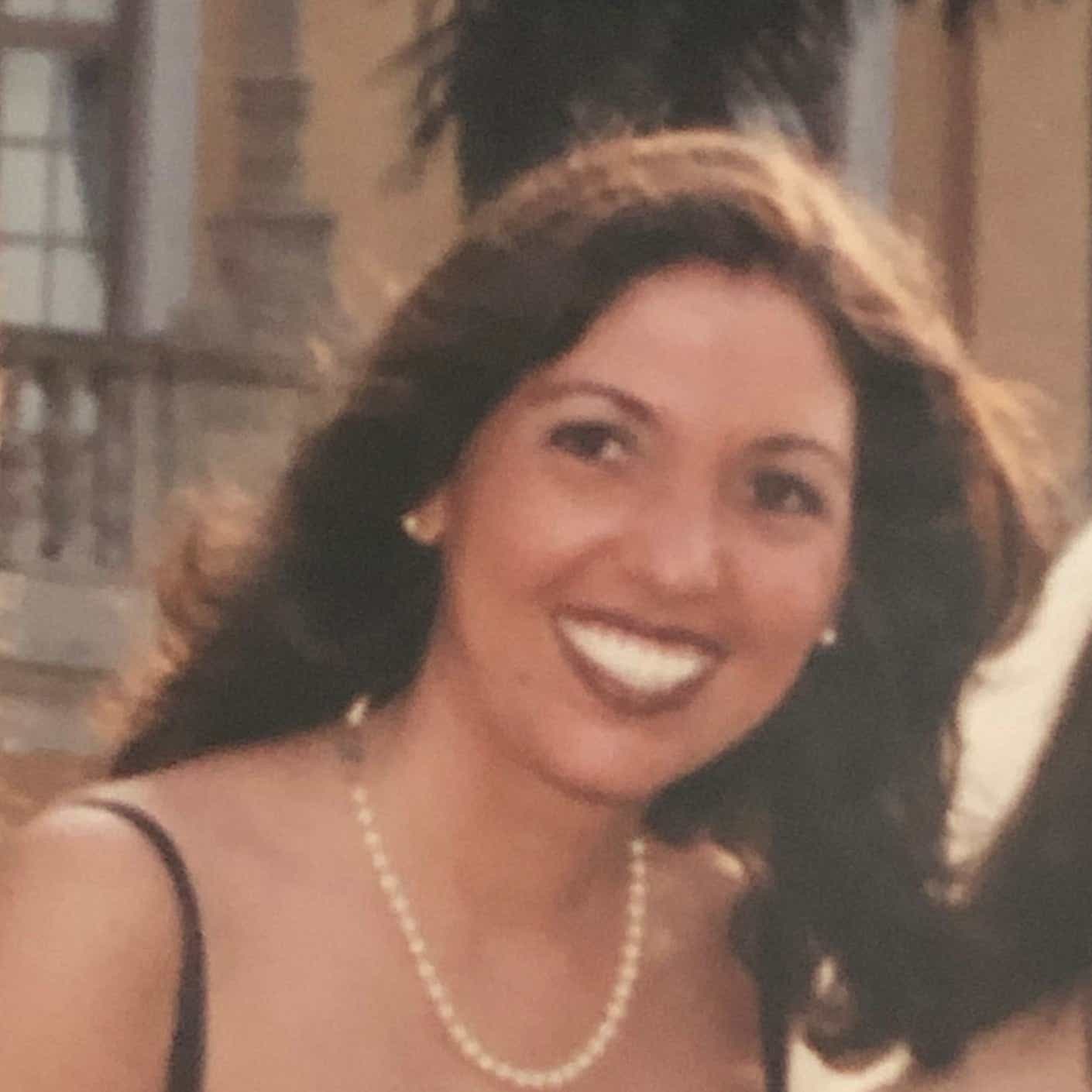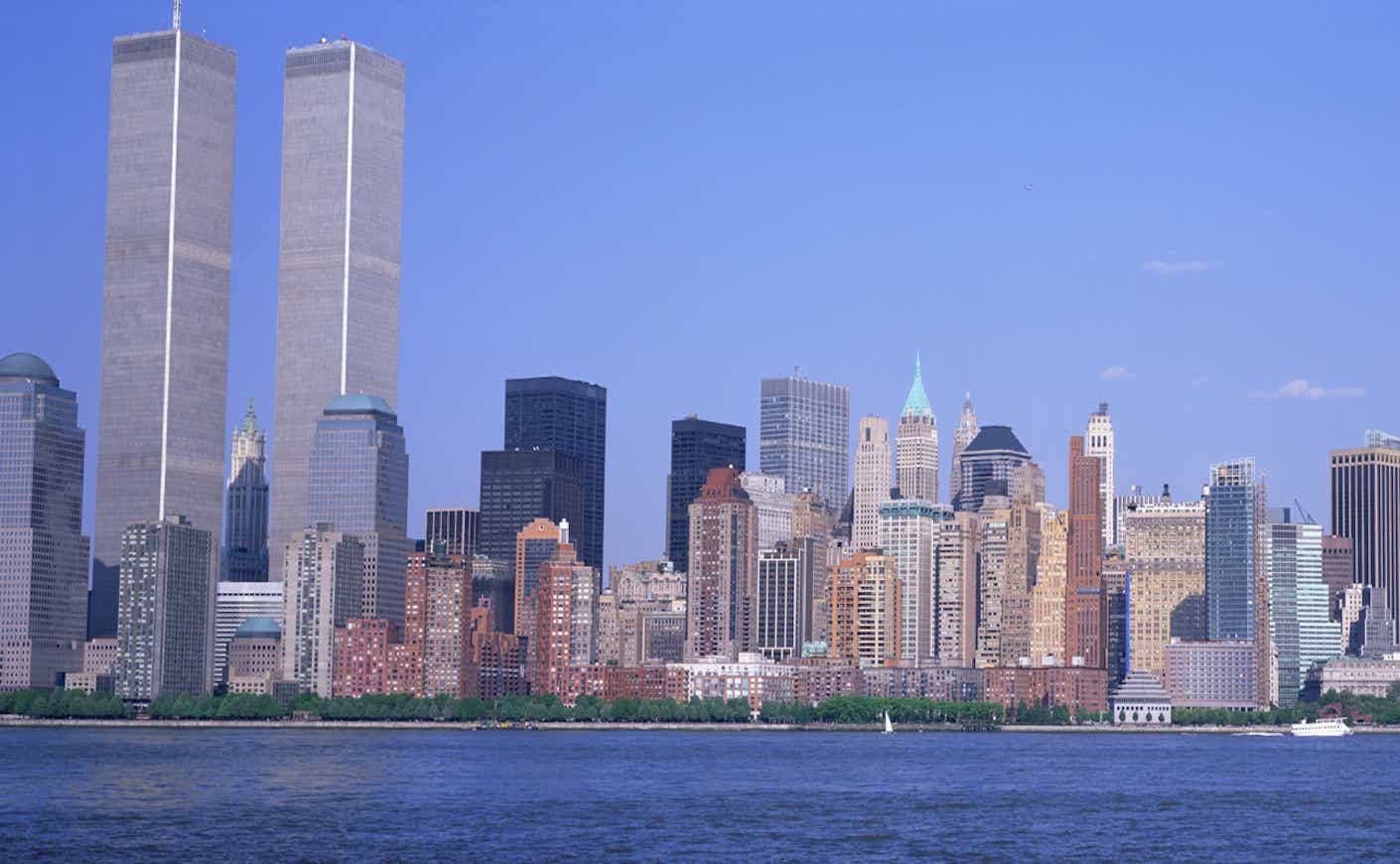For the 20th anniversary of 9/11, we reconnected with people Katie interviewed on the horrifying day of and during the days after the attack. We wanted to hear their stories and learn how that tragic event changed their lives. Read on for Jennifer Oberstein’s account of witnessing the horror firsthand.
I will never forget — and I continue to mourn — the nearly 3,000 innocent people murdered on September 11, 2001. I did not know any of the victims.
I was in Lower Manhattan on 9/11 and over the past 20 years, it’s been impressed upon me by family, friends, travels around the world, and exchanges with strangers that everyone’s story is a part of history that should be shared and documented.
Now, it’s never been more clear to me that eyewitnesses to the facts have to speak up. We must safeguard the truth and we will be on the right side of history.

After graduating from college in 1996, I was hired by NBC News and started on what would be my first career path — news journalism. I spent over four years at NBC where I worked my way up to associate producer. At the end of 2000, I was grateful to have had a career in news, but I decided it was time to pivot and start on a new career path. I would forever be a news junkie, but the only thing I would miss about working in the news business was being the "first to know.” In March 2001, I began my second career as the public relations manager for a new Ritz-Carlton hotel in lower Manhattan scheduled to open on October 9, 2001. I was 26 years old.
On the morning of September 11, 2001, I took the subway from the Upper East Side and emerged at the Bowling Green station on the edge of Battery Park. It was approximately 8:45 a.m. and a picture-perfect day. The temperature was ideal and the sky so blue that I found myself looking up and admiring the Twin Towers about 10 blocks north of where I was standing.
Suddenly, there was an enormous ball of fire near the top of the North Tower.
Something was wrong. From my angle, it looked like a fiery explosion had originated from remarkably high up on the Tower. I took out my cell phone and called my father’s office which was located in the World Financial Center, across the street from the World Trade Center. I wanted to tell him to leave because it looked like there might have been a bombing. But there was no answer.
I knew in my gut that something terrible just happened and at approximately 8:49 a.m., I called the main number for NBC News in New York — a number I have never forgotten. I was transferred to the control room and asked to speak with my former boss, a senior producer. I was told they were in the midst of the live show, so I asked if she could pass along a message: “I just thought you should know that I’m in lower Manhattan and I think I saw an explosion at the Twin Towers.”
Another former colleague asked me if I personally saw something occur downtown. NBC News had heard some things but did not have anyone reliable to confirm the incident; they could not relay information to millions of viewers without a trustworthy source.
“Jennifer, can we put you live on the air with Katie Couric and Matt Lauer? Will you do a phoner?”
I replied, “I guess so, but I don’t really know more than I’ve already told you.”
“Hold on. We are going to break into our programming and the anchors will speak with you.”
I could hear the voices of the live broadcast and something to the effect of, “We have Jennifer Oberstein on the phone…”
To watch Jennifer tell her story, click here:
The rest of my conversation was a general synopsis. I had not watched the entire interview until last year when Katie contacted me about “the call” for her upcoming memoir. I had not yet wanted to relive it, but it was time, with both her memoir and the approaching 20th anniversary.
I tried not to speculate and to answer the questions as best I could.
I told the anchors an officer was near me, and I could ask if he knew what had happened. The officer told me he heard that a small plane had crashed into the Twin Towers. I could not comprehend it, but I repeated it into the phone.
If a small plane hit the tower, I wouldn’t have seen it because I was south of the tower, and it would have approached and hit from the north. Thus, all I saw was the resulting explosion.
More eyewitnesses had joined the call from other locations and the sounds of their voices and depictions made me feel more uneasy. I began to walk the block or so toward the still-under-construction hotel at 2 West Street. I continued to worry about my father. I found myself on the sidewalk above the West Side Highway overpass looking at the Towers. It was 9:02 a.m.

The phone call with Katie and Matt continued, and suddenly I felt the earth shaking below me and heard a loud buzzing noise. I looked up and saw the silver belly of a large plane directly over my head. Not low enough to touch, but closer to my head than I could have ever imagined. I watched as the plane flew directly toward the second tower. A split second before it reached the South Tower, the body of the plane turned 90 degrees with one wing reaching for the sky and the other facing the street. The plane was positioned so it would do the most damage. It flew into the building. I said into the phone that a plane had flown into the Tower. I was in shock.
The call ended and I stared at the hole in the South Tower. These plane crashes were deliberate. I felt like I was part of an “end of days” movie. Only much later that day did I learn that the plane that flew over my head was United Airlines Flight 175 and filled with innocent people.
I stood near The Ritz-Carlton’s emergency evacuation location with about 60 other employees. Some cried, some were silent, everyone was shocked and confused. Countless people from neighboring buildings began evacuating south to our location in and around Battery Park.
Eventually, almost as one, we realized that we were not only observing debris falling from the towers, but we were witnessing fellow human beings falling to their death. I wondered, what kind of hell was going on inside those buildings? There was nothing we could do to help the people in the Towers, and I could not continue to watch people die.
I asked some colleagues if they wanted to start walking up the FDR Drive. Hundreds and ultimately thousands of surprisingly calm people walked from lower Manhattan on the pedestrian pathway alongside the FDR. As we walked north, on our left was the parkway and then “the city.” On our right was the East River.
Still, no one could make or receive cell phone calls. We had no contact with the world.
As we walked along the river, we heard the sounds of military fighter aircrafts zooming overhead. But were they “our” jets or “their” jets? And…who were they?
People called out to be ready to jump into the East River in case we were attacked from the air. The directives shocked me yet seemed reasonable. Should I take my shoes off if we jumped into the river? Should I keep my purse or let it go?
Then came the smoke and ash. Floating over the East River as if an enormous fog had rolled in. We did not know it at the time, but the South Tower had just collapsed.
As we approached the Brooklyn Bridge the numbers of people seemed to take on biblical proportions. Thousands of people walking across one of the most famous and beautiful bridges in the world. But wasn’t the Bridge a perfect target? Or was it the best escape route? I opted to stay on the FDR Drive and continue my journey home.
We were about one mile into what for me would be an 8-mile-long walk.
Inexplicably, that morning I decided to carry my heels and wear my Keds for the commute. If not for the Keds, I would have ended up like many women who eventually tossed or held their work shoes and progressed through the city on bare feet.
At this point, we had no idea the towers had collapsed. There were no cars, no radios, no phones – nothing.
People were slowing down ahead. There was a lone car parked on the side of the road and the driver had the car radio’s volume turned up for everyone to hear. We finally found out what was happening: the Pentagon was hit, the Towers had fallen, and there may be a plane heading for the White House or the Capital.
More than five miles into our trek, we came upon a few police officers and the United Nations building — where 42nd Street meets the East River. They kept repeating, “The U.N. is a possible target. Go into the city and walk.” Reluctantly, we turned into the city.

Eventually, I came upon a deli a few blocks from my apartment building. Maybe it was my background in news or the countless television shows and movies I had watched, or maybe it was just a Darwinian survival of the fittest instinct, but I walked into the little store and went directly to the ATM machine. I took out all of the cash it would allow. Would I need to pay someone to get out of the city? I just felt I should have lots of cash.
Then I bought bottled water, milk, and some groceries. I didn’t know if I would be holed up in my apartment for days or weeks and whether there would be a shortage of food. I brought my provisions up to the cashier and as I got ready to pay, I noticed a freezer filled with ice cream in front of the counter.
I had cash and provisions, but did I need anything else? Yes. I asked the cashier to wait while I added a few pints of ice cream. It quite possibly sparked my first smile since 8:46 a.m. Comfort food was indeed comforting.
I arrived at my apartment — and a landline — in the early afternoon. My dad was safe, he had walked home with co-workers up the West Side Highway.
And then I saw it. I turned on the television and saw the video, albeit from a different angle, of the second plane hitting the tower. There was a strangely morbid sense of relief. The world could and would see what I had seen.
I could hear fighter jets outside my apartment window, and thankfully knew they were “ours.”
I sat in my living room and watched the news for hours. Almost a year before, I had left the news business assured that I could remain a news junkie and would only miss being the “first to know.”









